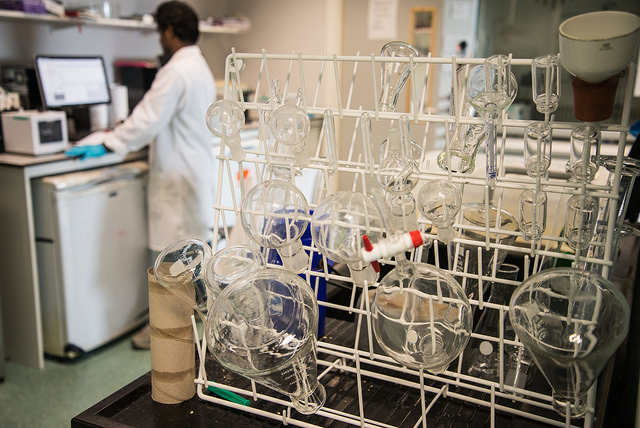Trinity scientists have made a major tuberculosis-related breakthrough that could pave the way for the development of treatment options for the deadly disease.
Researchers in Trinity’s School of Biochemistry and Immunology made the breakthrough in understanding how tuberculosis – still the world’s deadliest infectious disease, despite being rare in the developed world – inhibits the work of the human immune system.
Tuberculosis infects the cells of the immune system by manipulating cells in the lung to its benefit, allowing it to remain undisturbed in the lung, sometimes for years.
As part of a research project funded by Science Foundation Ireland, Prof Frederick Sheedy, the Ussher Assistant Professor in Trinity’s School of Biochemistry and Immunology, has been examining how these “lung macrophage immune cells” respond to infection. Sheedy was mentored by Prof Joseph Keane, a tuberculosis specialist in St James’s Hospital.
In unexpected results, published this week in leading international journal Cell Reports, Dr Emer Hackett, a PhD candidate in Sheedy’s group, found that persistent infection of these macrophages with tuberculosis essentially shuts down our natural response to infection, which allows the bacteria to hide in the cells.
Hackett found a small RNA molecule – which consists of tiny pieces of genetic information – that is promoted by the bacteria and that targets key enzymes that act as pumps in our immune engines to commit glucose to promote an anti-bacterial response.
In a press statement, Sheedy said: “We found that when TB-infected cells are treated with a key ‘Interferon gamma protein signal’ which is normally produced following vaccination, they will remove this microRNA to effectively relieve the brake and restore our normal immune response.”
He continued: “What is particularly promising from a societal impact perspective is that as well as increasing our knowledge of how TB corrupts our normal immune response to infection, our identification of the microRNA-21 means that scientists should be able to develop improved immunotherapies or vaccine strategies to help in the fight against TB infection.”
In 2018, Trinity scientists found that smoking can weaken a person’s ability to fight tuberculosis.






